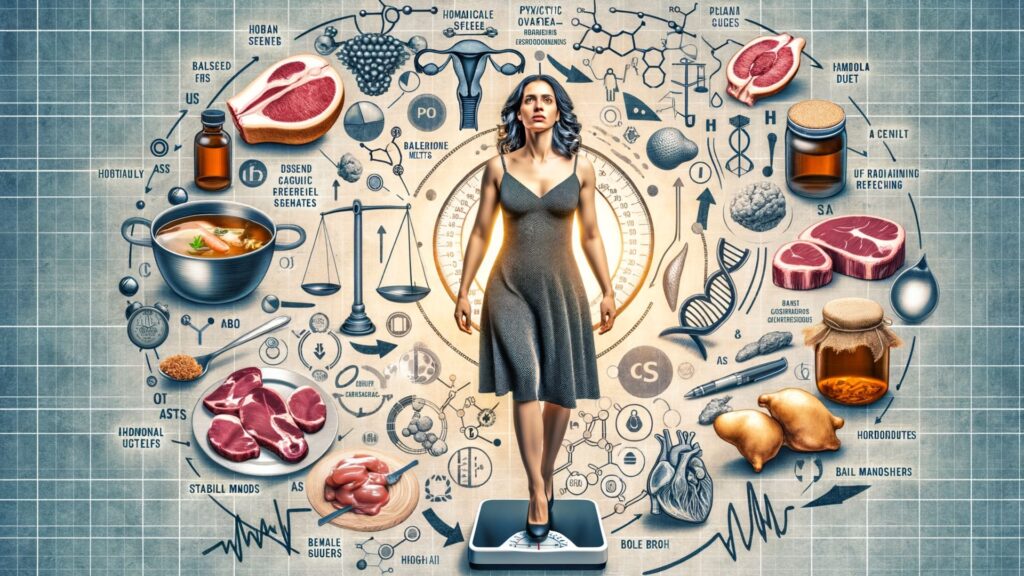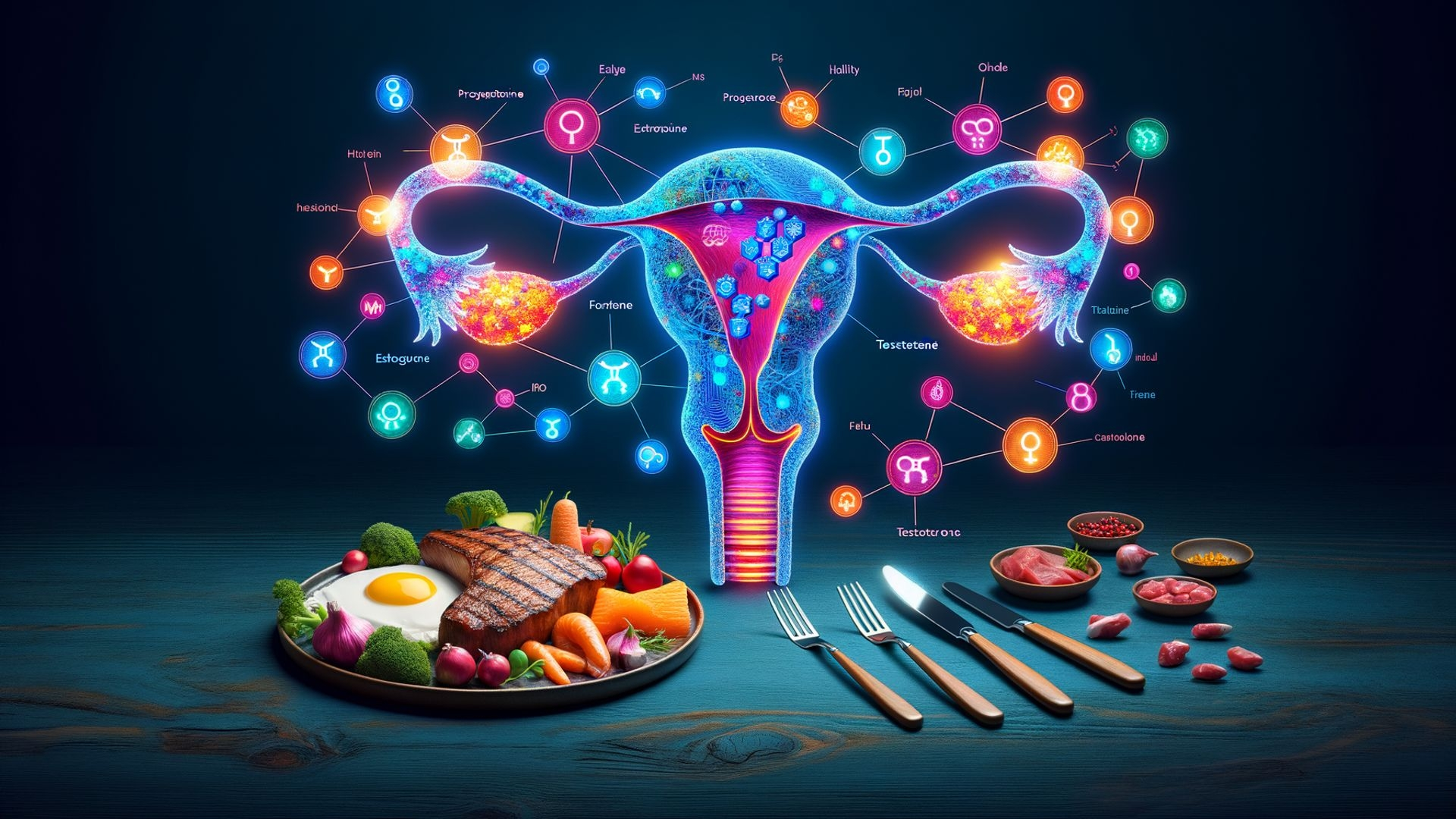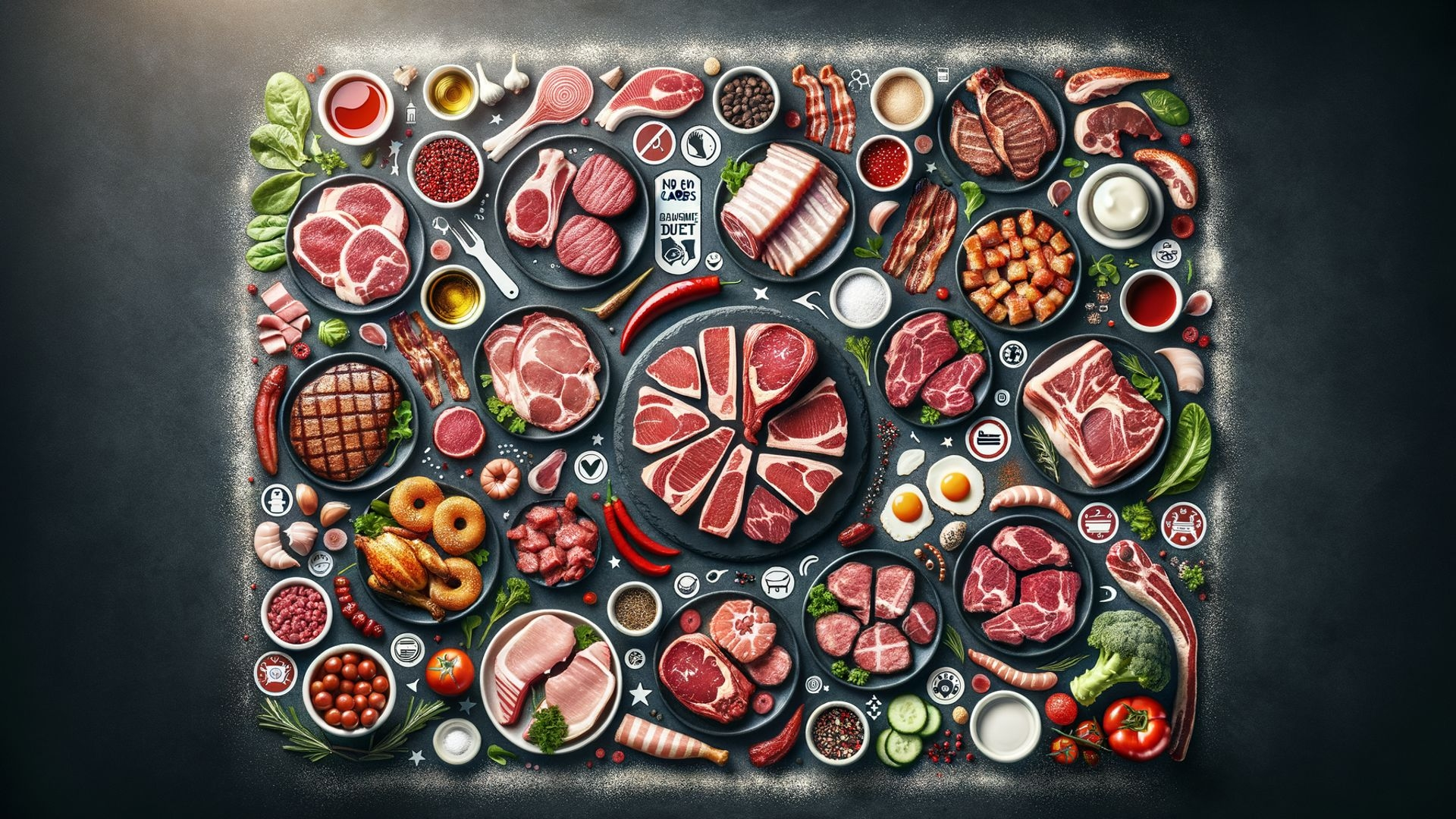Navigating Menopause with the Carnivore Diet for Women
Menopause is a natural transition in a woman’s life that typically occurs in her late 40s to early 50s, marking the end of her reproductive years. It is a phase characterized by hormonal changes, specifically a decline in estrogen and progesterone levels. Many women going through menopause experience symptoms such as hot flashes, weight gain, and mood swings. While there are various approaches to managing menopausal symptoms, one emerging trend is the carnivore diet.
Understanding the Carnivore Diet
What is the carnivore diet and how does it work?
The carnivore diet, also known as an all-meat diet, is a dietary approach that involves consuming only animal products and eliminating plant foods. This means a diet high in animal protein and fat while excluding carbohydrates. Supporters of the carnivore diet believe that it can promote weight loss, improve metabolic health, and enhance overall well-being.
Can women benefit from following a carnivore diet during menopause?
Women experiencing menopause may find benefits from adopting a carnivore diet. Some women report that the carnivore diet may help manage menopausal symptoms such as hot flashes and weight gain. By focusing on nutrient-dense animal foods, women may support their hormonal balance during this transitional phase.

How does the carnivore diet impact hormone levels in women?
The carnivore diet, being rich in animal fats and protein, can influence estrogen and progesterone levels in women. While research is ongoing in this area, some women experience improvements in their hormone balance when following a carnivore diet, which can potentially alleviate menopausal symptoms.
Managing Menopause Symptoms with the Carnivore Diet
How can the carnivore diet help with menopausal symptoms?
The carnivore diet may help women going through menopause by providing a source of essential nutrients like zinc and omega-3 fatty acids, which are crucial for hormonal health. Some women find relief from symptoms like mood swings and fatigue when following a carnivore diet.
Are there specific benefits of a carnivore diet for postmenopausal women?
Postmenopausal women may benefit from the carnivore diet due to its focus on nutrient-dense animal foods that support bone health and hormonal balance. Additionally, the high-fat content of the diet can aid in weight management and support overall well-being.
What are the potential drawbacks of a meat-based diet during menopause?
While the carnivore diet can offer benefits, it is important to consider potential drawbacks as well. A diet devoid of plant foods may lead to deficiencies in certain nutrients like fiber and vitamins found in fruits and vegetables. It is essential for women following a carnivore diet to ensure they are meeting their nutritional needs through other means or supplementation.
The Role of Hormones and Nutrients in Menopause and the Carnivore Diet
How does the carnivore diet meal contribute to hormonal balance during menopause?
The carnivore diet, by providing adequate amounts of animal fats and proteins, can support hormonal balance in menopausal women. Healthy fats play a crucial role in hormone production and function, which is vital during the menopausal transition.
What nutrients in the carnivore diet are crucial for menopausal women?
For menopausal women, nutrients like zinc, omega-3 fatty acids, and vitamin D are essential for overall health and well-being. These nutrients, commonly found in animal products, can help support bone health, cognitive function, and hormonal balance during menopause.
Can the carnivore diet help manage conditions like PCOS during menopause?
Polycystic ovary syndrome (PCOS) is a hormonal disorder that can affect women during their reproductive years and into menopause. While research is ongoing, some women with PCOS may find benefits from adopting a carnivore diet due to its potential impact on insulin levels and hormone balance.

Optimizing Weight Management and Hormonal Health
Does the carnivore diet support healthy weight management during menopause?
The carnivore diet, with its focus on high-fat and protein-rich foods, can support healthy weight management during menopause. By eliminating carbohydrates and processed foods, women may experience improved metabolic health and better weight control on a carnivore diet.
What role do fats play in the carnivore diet for women going through menopause?
Fats are essential for hormone production and absorption, making them crucial for women going through menopause. The high-fat content of the carnivore diet can help support hormonal balance and provide a source of sustained energy for women experiencing hormonal fluctuations.
How does the avoidance of carbohydrates in a carnivore diet impact insulin levels?
By avoiding carbohydrates, the carnivore diet can help stabilize insulin levels in women during menopause. Fluctuations in blood sugar and insulin can impact hormonal balance and contribute to symptoms like weight gain and mood swings commonly experienced during this phase.
Incorporating the Carnivore Diet into a Menopause Wellness Plan
What are some practical tips for integrating the carnivore diet into a menopause wellness routine?
Integrating the carnivore diet into a menopause wellness plan can involve gradually transitioning to the diet, ensuring adequate nutrient intake through a variety of animal products, and consulting with a healthcare provider for personalized guidance. Women can experiment with different cuts of meat, organ meats, and fats to tailor their diet to their needs.
Can the consumption of organ meats on a carnivore diet benefit menopausal women?
Organ meats are rich in essential nutrients like iron, vitamin B12, and zinc, which are beneficial for women going through menopause. Including organ meats in a carnivore diet can provide a concentrated source of nutrients that support overall health and well-being during the menopausal phase.

Is there a need for supplementation when following a plant-food-restricted diet like the carnivore diet?
Since the carnivore diet restricts plant foods that are common sources of certain vitamins and minerals, women following this diet may need to consider supplementation to ensure they are meeting their nutritional requirements. Consulting with a healthcare provider or nutritionist can help determine the need for specific supplements based on individual health needs.
Is Carnivore Diet Good For Menopause Frequently Asked Question
Can the Carnivore Diet impact estrogen levels during menopause?
Yes, the Carnivore Diet’s high-fat content and exclusion of carbohydrates, which may affect blood sugar levels, can potentially influence estrogen levels and other reproductive hormones associated with menopause.
How does the Carnivore Diet help manage menopause symptoms like hot flashes and mood swings?
By providing a stable source of nutrients and regulating blood sugar levels, adhering to a carnivore diet can lead to improved body composition, and brain health, and potentially alleviate symptoms like hot flashes and mood swings associated with menopause.
Are there specific carnivore diet foods that can support women going through menopause?
Foods like bone broth, organ meats, and fatty cuts of meat are commonly consumed on the carnivore diet and can provide essential nutrients that support women’s health during menopause.
Can following a carnivore diet help women with conditions like polycystic ovarian syndrome (PCOS) navigate menopause?
The high-fat, low-carb nature of the carnivore diet may be beneficial for women with conditions like PCOS during menopause by stabilizing hormone levels and improving symptoms related to the reproductive system.
How does the carnivore diet differ from a ketogenic diet in terms of managing menopause?
While both diets share similarities in being high-fat, low-carb approaches, the carnivore diet is an all-meat diet, whereas the ketogenic diet allows for a broader range of foods. Some individuals find the simplicity of the carnivore diet easier to follow and attribute specific benefits to its restrictions.
What is a carnivore diet and how might it relate to menopause management?
A carnivore diet is an eating plan that includes only animal products such as meat, fish, eggs, and dairy, excluding all plant-based foods. It may affect menopause management by potentially influencing hormone levels due to its high fat and protein content, which can impact the balance of estrogen and progesterone.
Can a carnivore diet alleviate common symptoms of menopause such as hot flashes or mood swings?
There is limited scientific research on the direct effects of a carnivore diet on menopausal symptoms. Some anecdotal reports suggest that the high-fat content in a carnivore diet could help stabilize hormones and mood swings; however, more research is needed to substantiate these claims.
Are there any potential risks associated with adopting a carnivore diet during menopause?
Yes, potential risks include nutrient deficiencies (such as fiber, vitamins C and E), increased risk of heart disease due to high saturated fat intake, compromised bone health from lack of dietary calcium from plant sources, and potential exacerbation of kidney issues from high protein intake.
How can self-experimentation be safely conducted with a carnivore diet during menopause?
Self-experimentation should be done cautiously by starting with short-term trials, monitoring symptom changes closely, consulting healthcare professionals for personalized advice, getting regular blood work to check for nutrient deficiencies or other health markers, and considering gradual introduction rather than abrupt dietary changes.
Is there enough knowledge or scientific evidence available to support the use of a carnivore diet specifically for menopausal women?
As of now, there is not enough rigorous scientific evidence supporting the efficacy or safety of a carnivore diet specifically for menopausal women. Most available information comes from anecdotal evidence; thus more research is necessary to provide conclusive recommendations.






